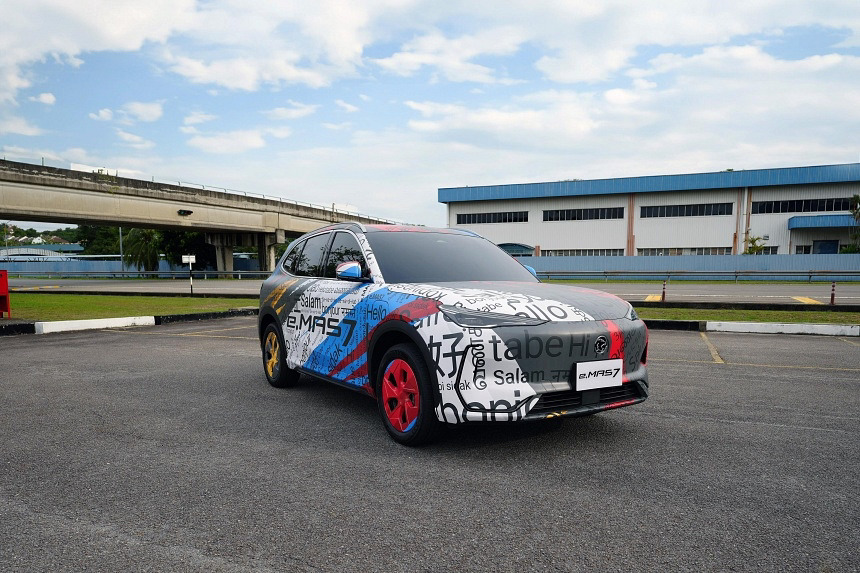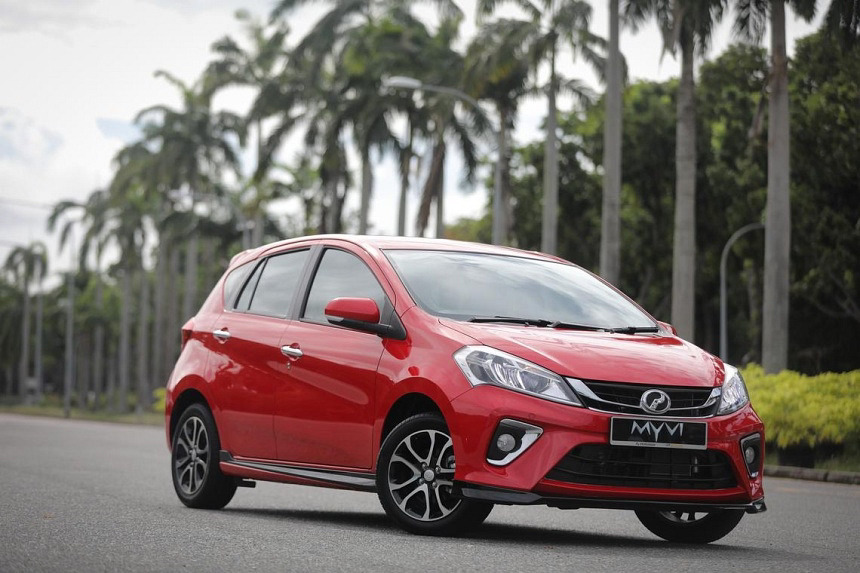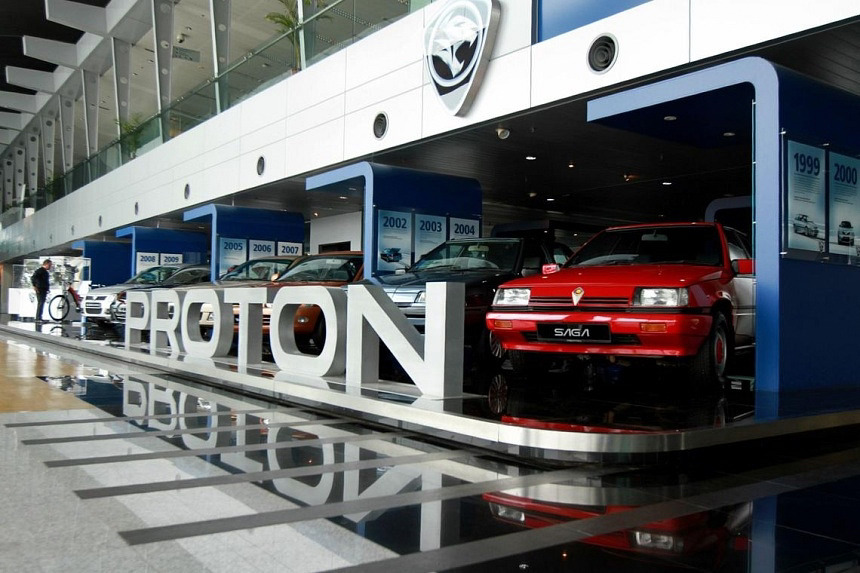
ANN/THE STRAITS TIMES – Proton’s first electric vehicle is expected to go on sale in December, as Malaysia’s national carmaker takes the fight for market share to Tesla and Chinese brands including BYD.
The e.MAS 7 has a sleek design with body contours similar to that of the BYD Atto 3, a 150kW compact electric crossover, but is expected to have a smaller price tag.
It could cost around MYR100,000, according to industry observers. The Atto 3 is sold at around MYR149,800, while Tesla’s cheapest EV in Malaysia, the 208kW Model 3, is priced from MYR181,000.
“Our goal with the Proton e.MAS 7 is to fulfil our promise of delivering Malaysia’s first national all-electric vehicle. With the groundbreaking technology embedded in it, we are confident it will not only impress with its innovative breakthroughs but also deeply resonate with our audience on an emotional level,” Proton CEO Li Chunrong said at a media preview of the EV on August 2.
Malaysia’s EV market is still at a nascent stage. The higher price points of these electric vehicles and concerns about the lack of charging stations outside major cities are deterrents for buyers.
In the first six months of 2024, a total of 12,850 EVs were sold in the country, a 150 per cent surge from the same period in 2023. But that is just 3.3 per cent of the 390,269 total vehicle sales in that period.
A total of 720,658 vehicles were sold in the country in 2022, and 799,731 in 2023, figures released by the Malaysian Automotive Association showed.
Malaysia has a target of having EVs, including hybrids, account for 15 per cent of the total industry volume by 2030.
Like most other markets, Malaysia’s EV market is being flooded with EVs from China. Apart from BYD, those that have entered in the last few years include Chery, Great Wall Motor and MG.
Proton’s e.MAS 7, after it is launched, will not only be facing off against foreign EV models but also against one from Perodua, the second Malaysian national carmaker, in the near future.

Perodua’s model, reportedly named the eMO-1, is slated to be launched at the end of 2025, with an expected price tag of between RM50,000 and RM100,000.
In fact, Proton’s main rival is not any of the foreign car brands, but Perodua.
Proton sold 150,975 vehicles locally in 2023, out of nearly 800,000 cars in total, compared with Perodua’s sales of 330,325 cars.
Perodua’s compact sedan Bezza and the Axia and Myvi hatchbacks are Malaysia’s top three best-selling car models – in the first half of 2024, these cars sold 47,100 units, 42,900 units and 34,688 units, respectively.
Proton’s best-selling model, the Saga, is at fourth place with 34,035 units sold in the same period.
Since May 2017, Proton has been 49.9 per cent owned by Chinese carmaker Zhejiang Geely Holding Group. The Malaysian carmaker was in the red when Zhejiang Geely bought the stake for RM460.3 million.
In 2016, Proton’s sales fell 29 per cent to 72,290 units, from around 102,175 units in 2015. The total number of cars sold in Malaysia in 2016 and 2015 was 580,085 and 666,674, respectively.
The Chinese group quickly brought in its Geely sport utility vehicles (SUVs), rebadged them as Proton X70 and, later, the smaller X50, which today dominate the Malaysian SUV market.
These are priced much lower than similar-sized rivals such as the Honda CR-V and Honda HR-V, respectively. For example, the price of an X70 starts from RM98,800, while the CR-V starts from RM159,900 (Geely cars are not sold in Malaysia).
Proton sales have since been steadily exceeding 100,000 units annually for six consecutive years.
The Malaysian carmaker was launched in 1983 as a national car project by then Premier Mahathir Mohamad, with minority shareholder and Japanese giant Mitsubishi Group.
It was part of his grand industrialisation plan for the country to mimic the success of Japan and South Korea.
Proton was quite successful in its early years with the rebadging of old Mitsubishi sedans.
Sales of its first car, the Saga, launched in 1985, outstripped supply; by 1986, it had gained 64 per cent of the domestic market for cars below 1,600cc.
“Proton was created to build a Malaysian automotive industry, connect the Malaysian automotive industry to the global industry and to promote Malaysia to the world,” independent transport consultant Moaz Yusuf Ahmad told The Straits Times.
“While Proton has achieved these goals, it could not sustain them on its own.”

In Proton’s early years, Malaysian leaders kept a strong grip on the company, maintaining its “Malaysian carmaker” status while trying to expand the Proton and Malaysia brand internationally, said Moaz.
“But as Proton began facing local and international competition and losing money, it could not sustain a strong presence and share in international markets,” he said.
In its 40-year history, Proton has exported its cars to as many as 70 countries. It currently has a presence in 20 export markets, including Brunei, Egypt, South Africa and Nepal.
But its exports have always been weak. In 2012, the carmaker sold around 20,000 units abroad. This fell to 248 units in 2017, before recovering to 5,406 vehicles in 2022.
“The success of Proton is generally driven by the domestic market,” said Dr Mohamed Eskandar Shah, associate professor in Islamic finance at Qatar’s Hamad Bin Khalifa University, who specialises in finance and economics, including the automotive sector.
Proton has yet to become a household name beyond Malaysia, with much of its revenue driven by local demand, he noted.
Even though Geely owns 49.9 per cent of Proton today, it is still a Malaysian-owned company, Moaz said. Malaysian conglomerate DRB-HICOM owns the remaining 50.1 per cent stake in Proton.
The value of the investment from Geely is significant for Proton and Malaysia as long as the investment in the Malaysian automotive industry and technology, local research and development as well as jobs continues, Moaz added.
“It’s now time to invest in turning Proton around by focusing on building industrial capacity, improving vehicle design and building for a sustainable industry,” he said.








